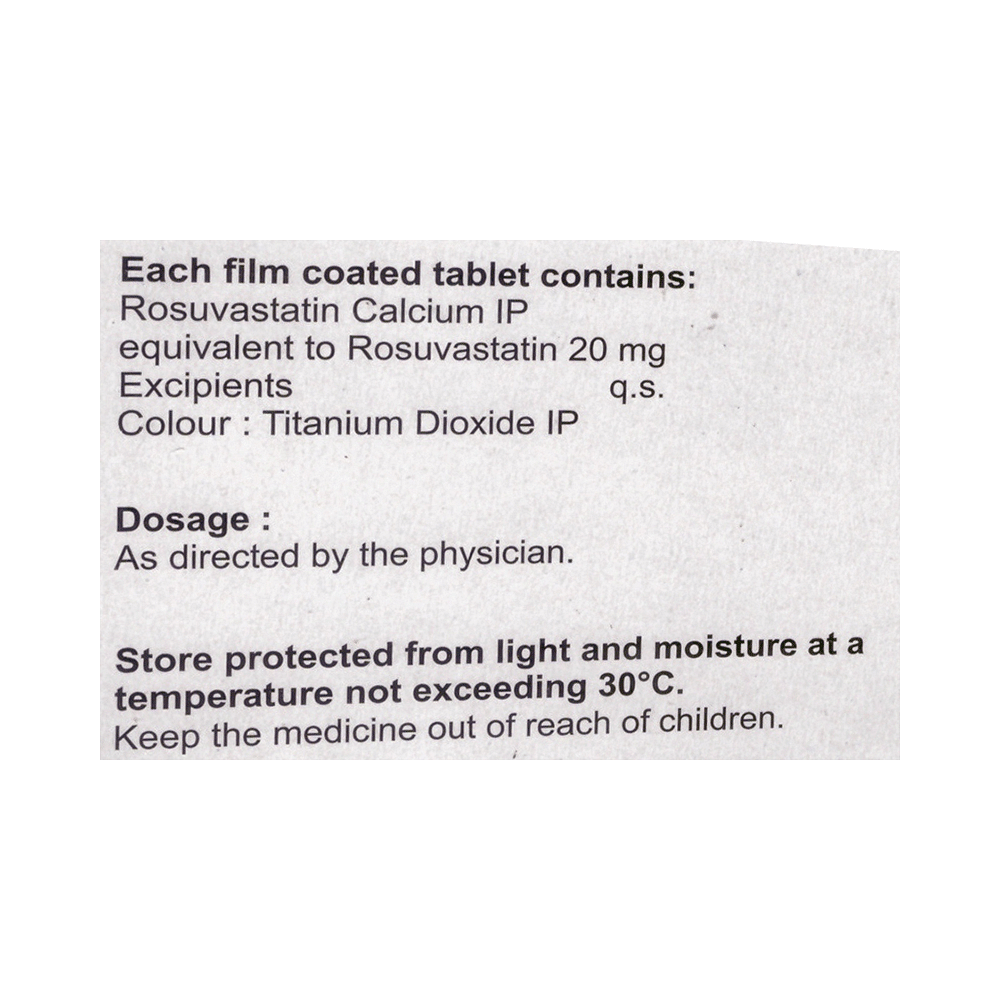

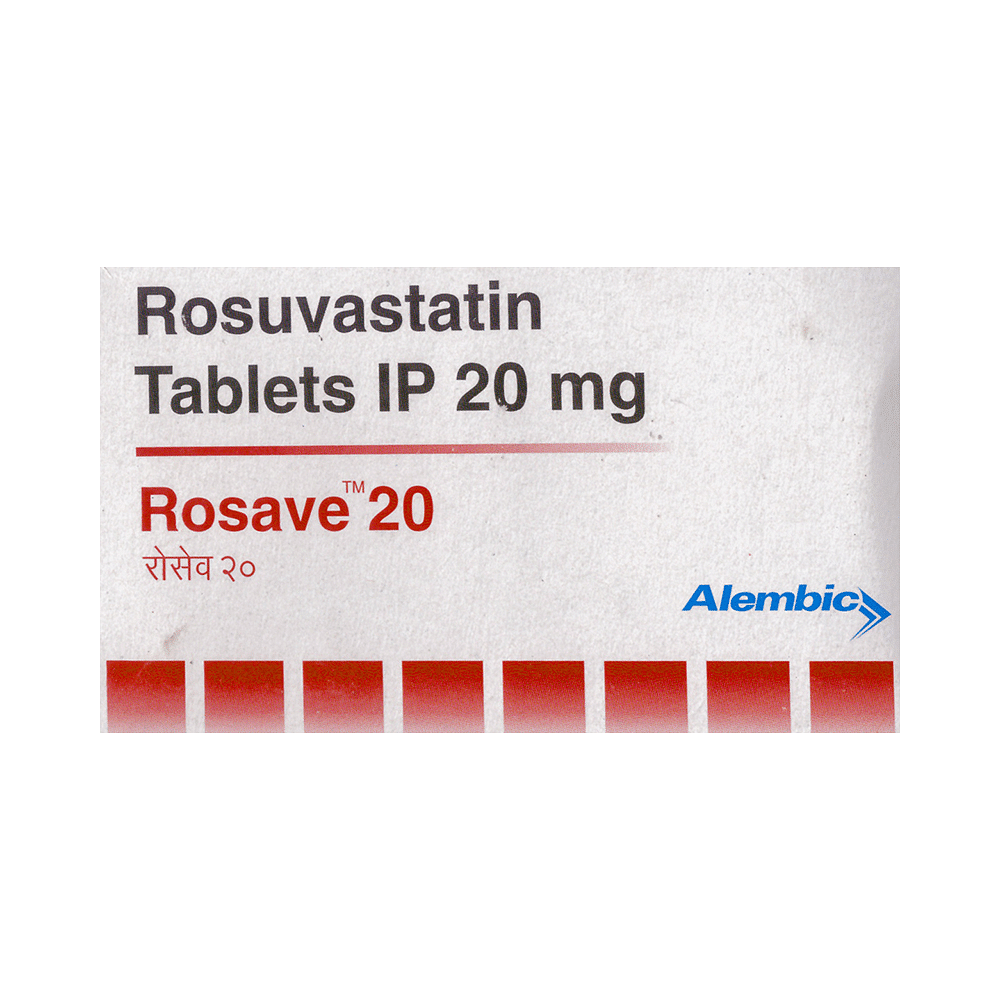
Rosave 20 Tablet
Manufacturer
Alembic Pharmaceuticals Ltd
Salt Composition
Rosuvastatin (20mg)
Key Information
Short Description
Rosave 20 Tablet belongs to a group of medicines called statins. It is used to lower cholesterol and reduce the risk of heart disease.
Dosage Form
Tablet
Introduction
Rosave 20 Tablet is a widely prescribed medicine and is regarded as safe for long-term use. It can be taken with a meal or on an empty stomach. You can take it at any time of the day but try to take it at the same time each day. Most people with high cholesterol do not feel ill but stopping your medicine may increase your cholesterol levels making your condition worse and increasing your risk of heart disease and stroke.
Directions for Use
Take this medicine in the dose and duration as advised by your doctor. Swallow it as a whole. Do not chew, crush or break it. Rosave 20 Tablet may be taken with or without food but it is better to take it at a fixed time.
How it works
Rosave 20 Tablet is a lipid-lowering medication (statin). It works by blocking an enzyme (HMG-CoA-reductase) that is required by the body to make cholesterol thereby lowering 'bad' cholesterol (LDL) and triglycerides and raising 'good' cholesterol (HDL).
Quick Tips
Take it with food if you experience diarrhea, gas or an upset stomach. Take it with food if you experience fatigue, muscle weakness or muscle pain. Monitor your liver function before starting the treatment and regularly thereafter. Monitor your blood sugar level regularly as Rosave 20 Tablet may cause an increase in your blood sugar level. Do not take Rosave 20 Tablet if you are pregnant, planning a pregnancy or breastfeeding.
Related Medicines
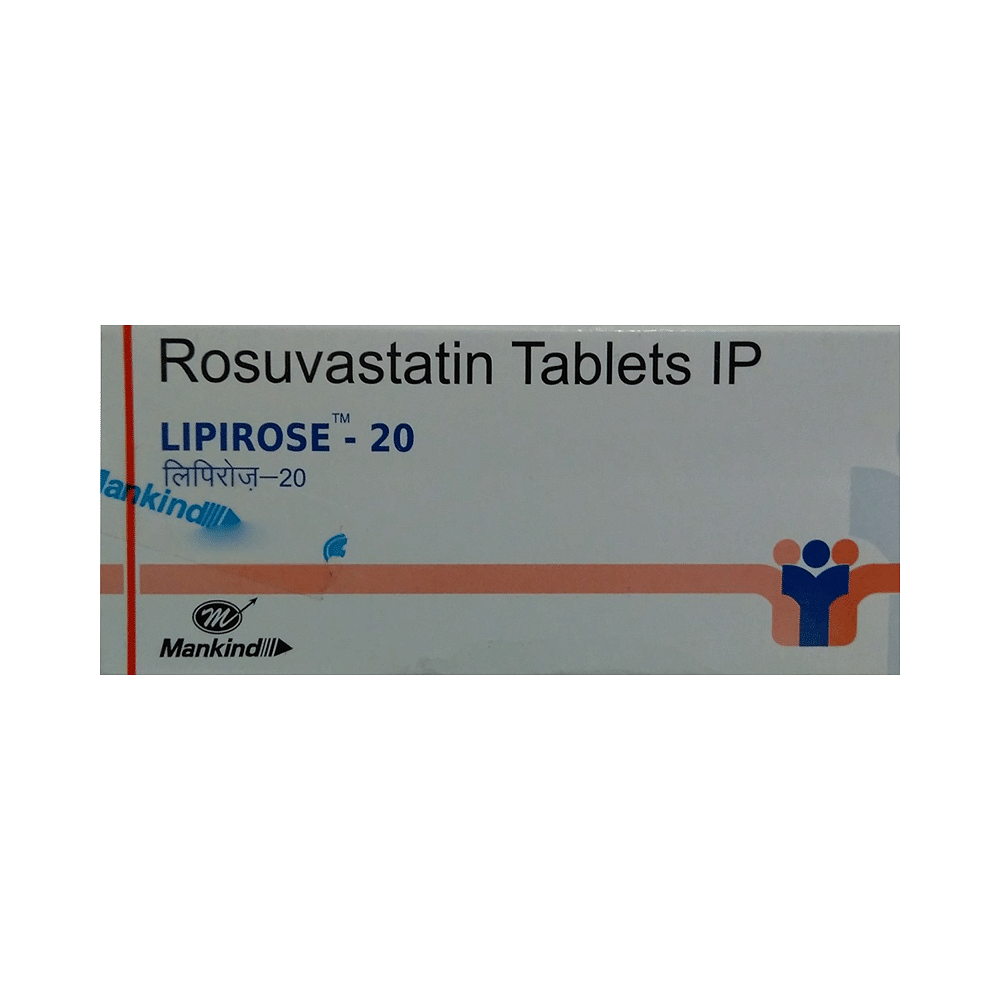
Lipirose-20 Tablet
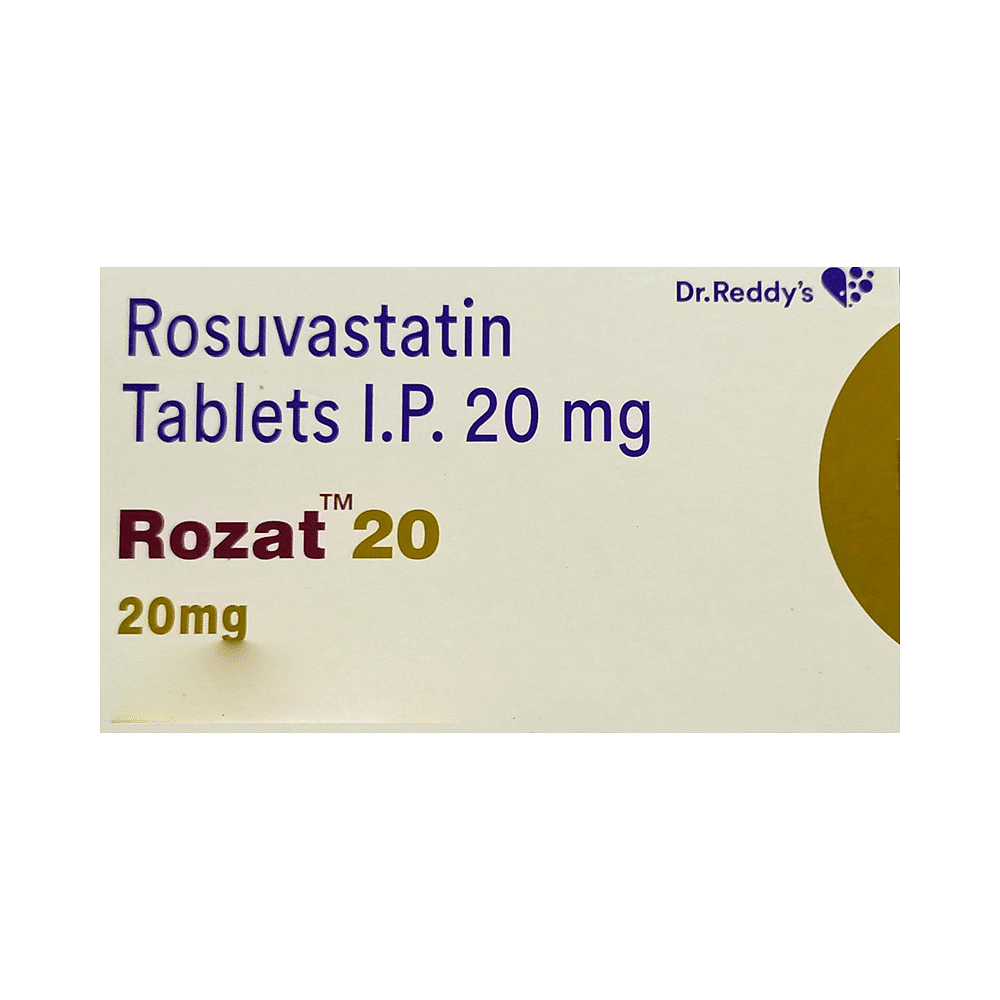
Rozat 20 Tablet
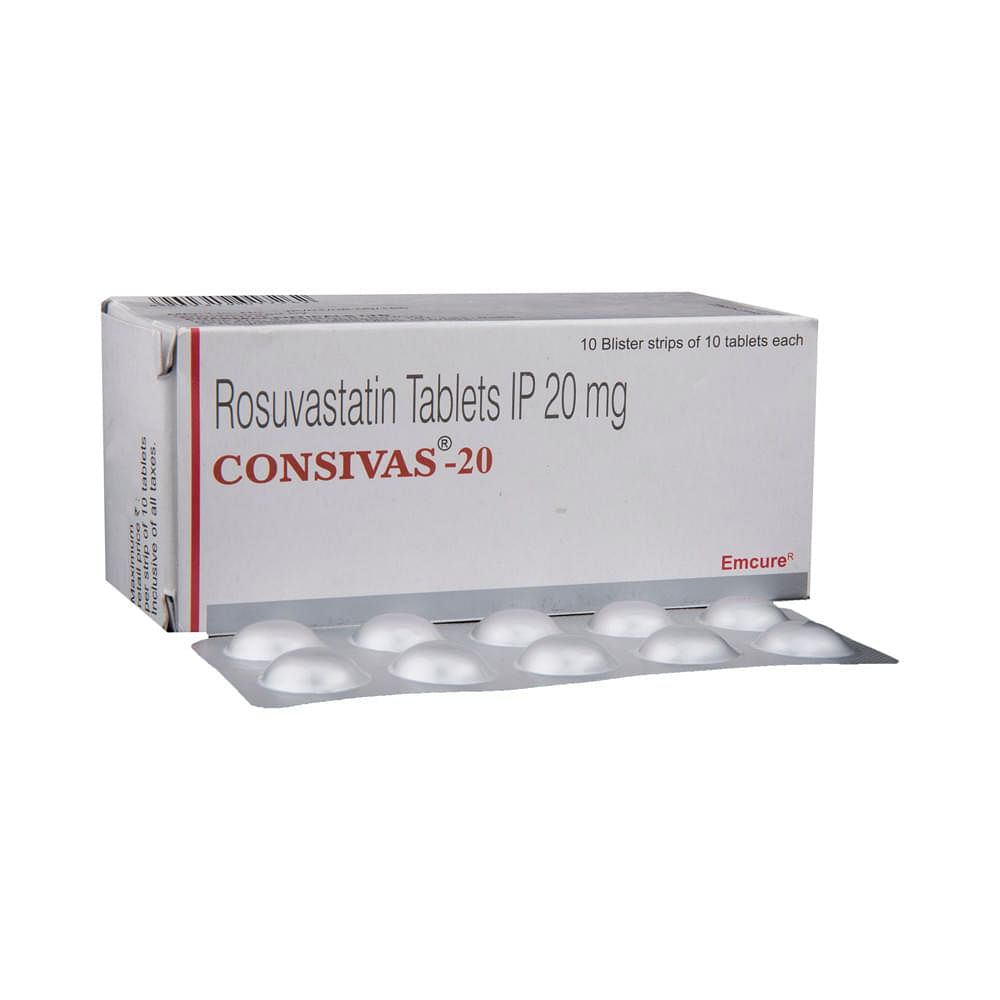
Consivas 20 Tablet
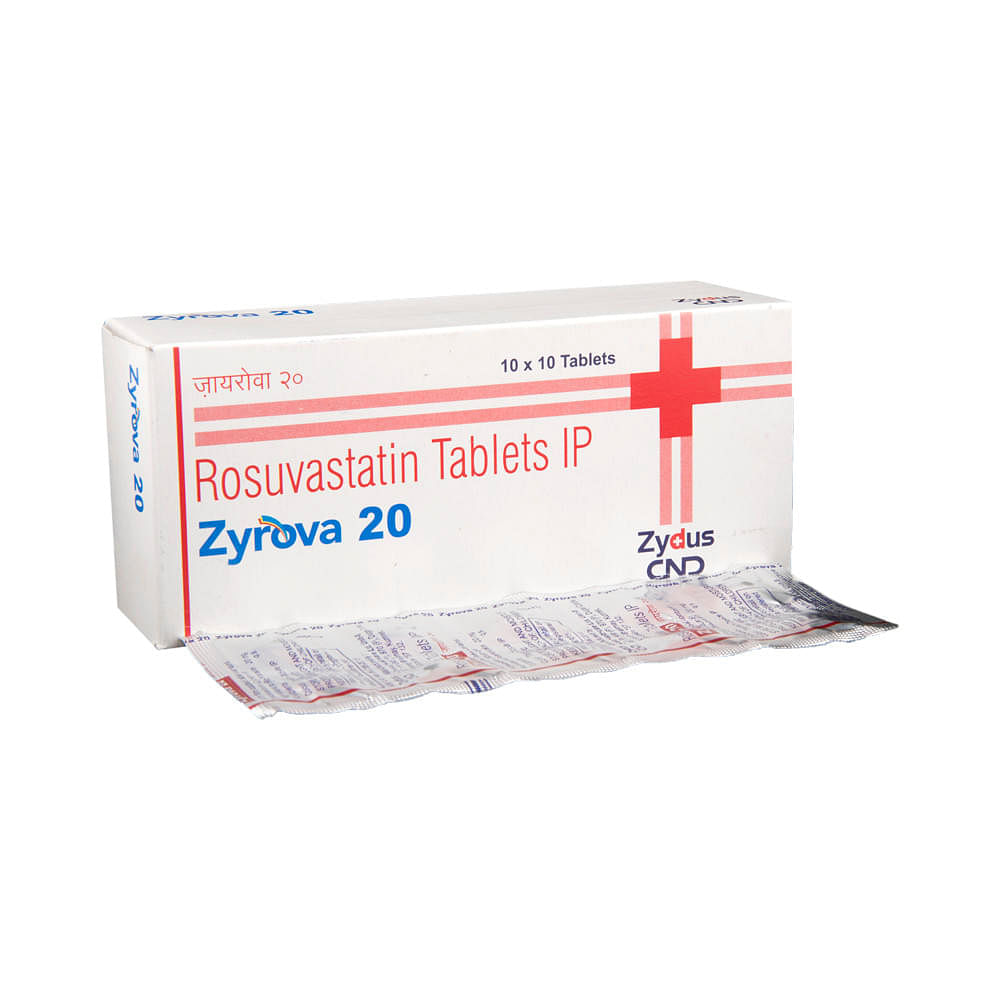
Zyrova 20 Tablet

Crestor 20 Tablet
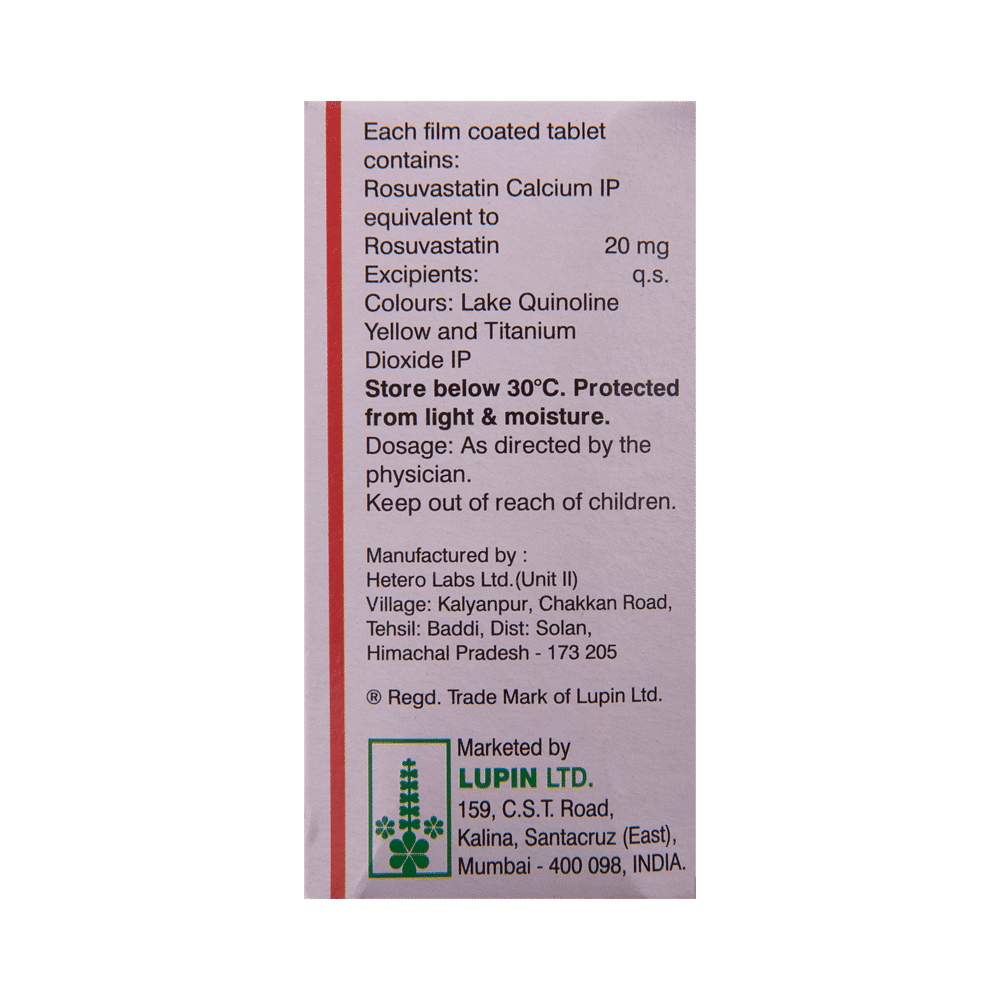
Novastat 20 Tablet
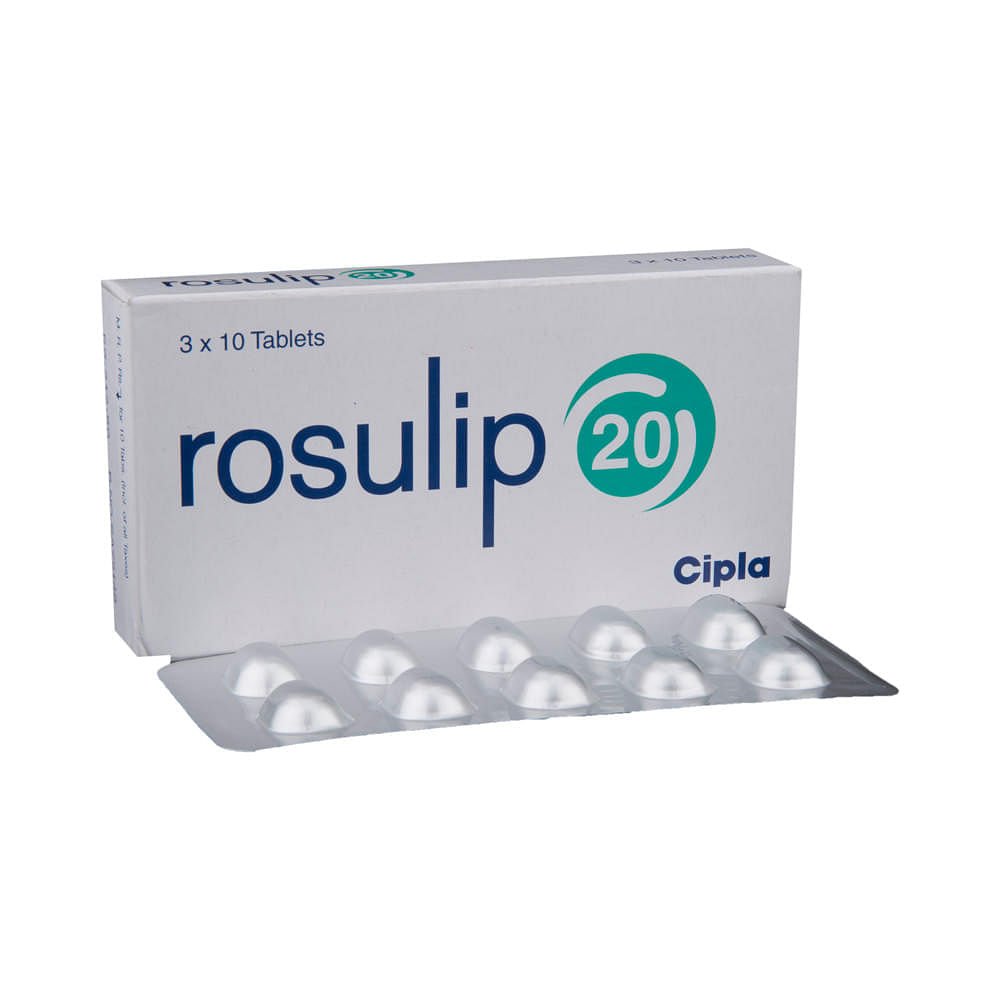
Rosulip 20 Tablet
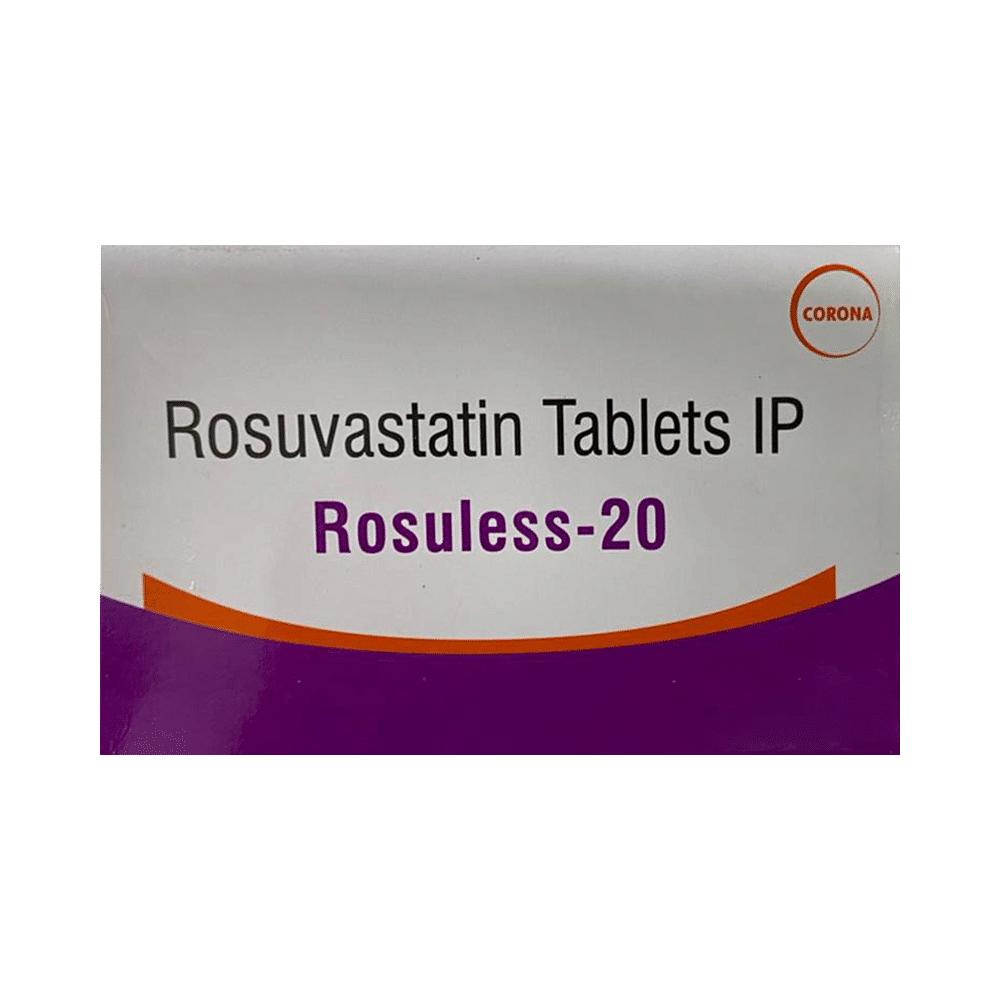
Rosuless 20 Tablet
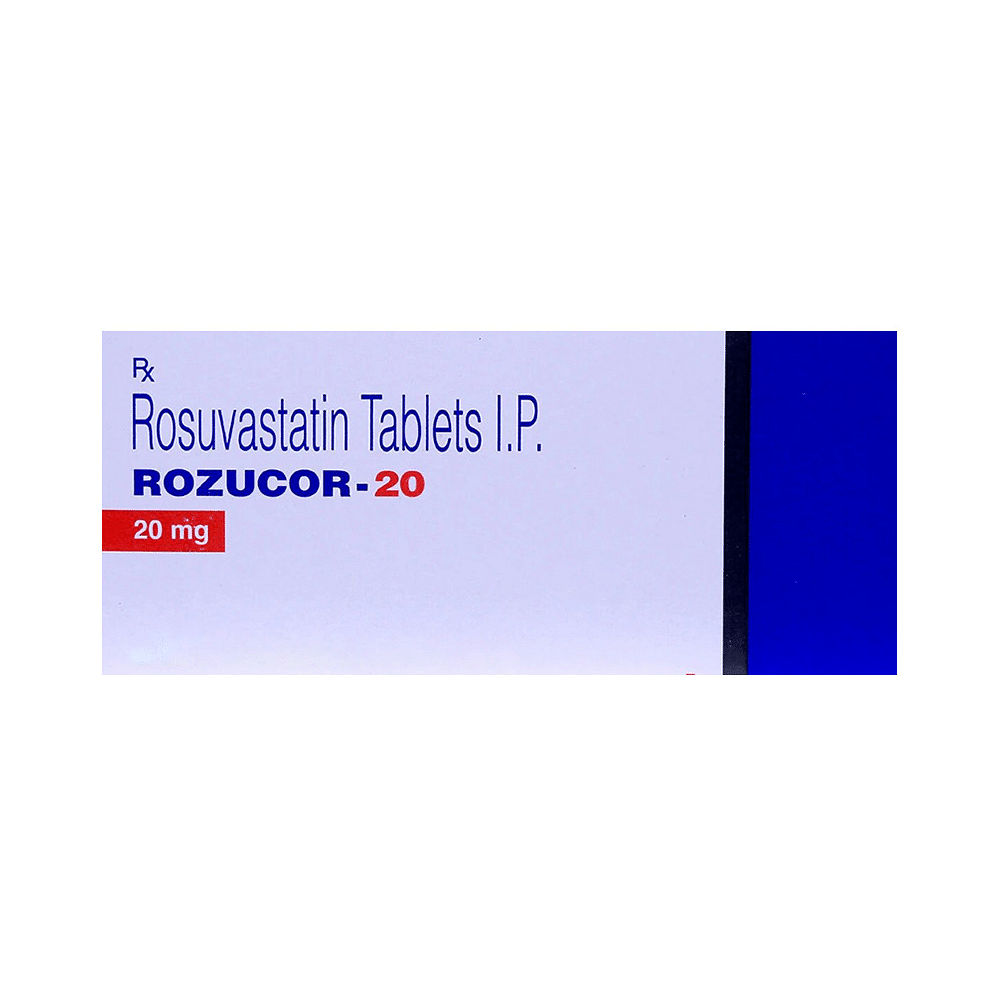
Rozucor-20 Tablet
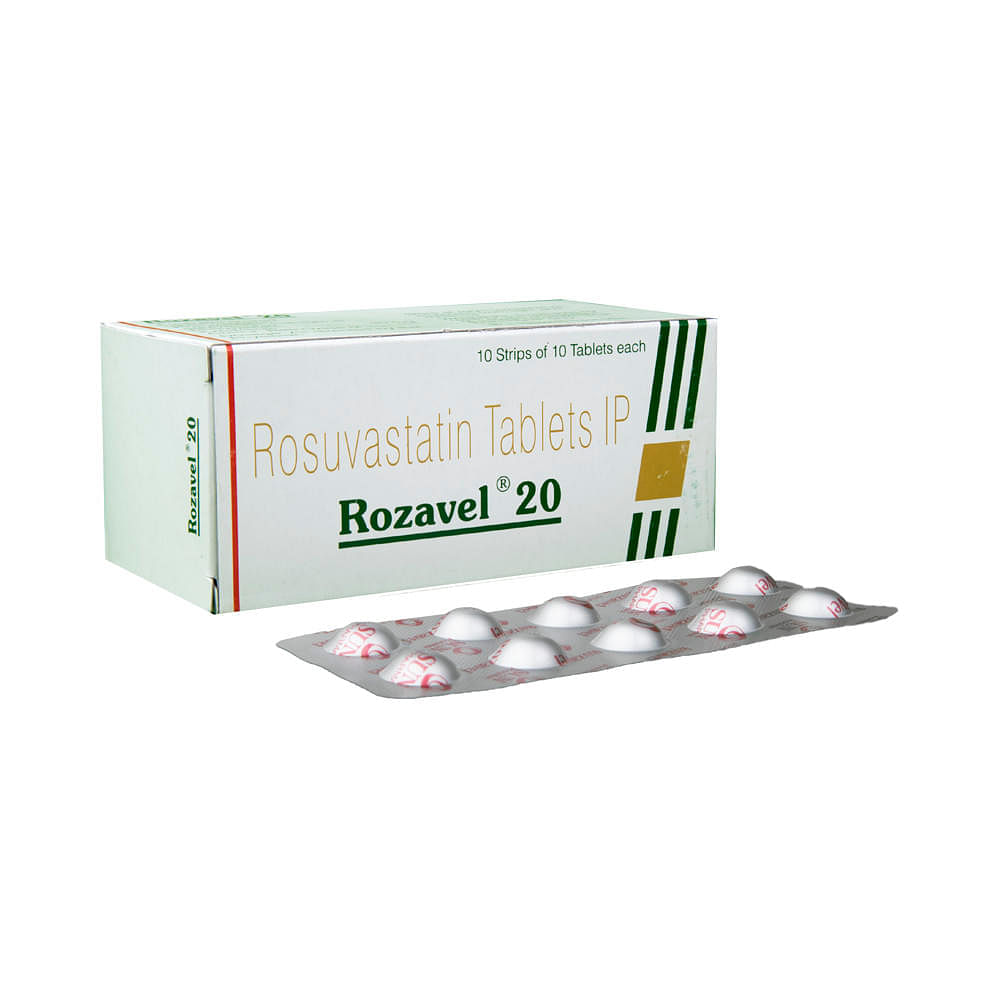
Rozavel 20 Tablet
Frequently asked questions
How long should I take Rosave 20 Tablet?
The duration of Rosave 20 Tablet treatment is determined by your healthcare provider based on individual needs. It may be required for life or for as long as directed by your doctor. Maintaining cholesterol levels after stopping the medication is a factor that should be discussed with your doctor.
Does Rosave 20 Tablet cause weight gain?
There is currently no evidence suggesting that Rosave 20 Tablet causes weight gain. However, if you experience any unexpected changes in your weight, consult your healthcare provider. It may be useful to discuss the possibility of alternative treatment options.
Does Rosave 20 Tablet cause fatigue?
Yes, Rosave 20 Tablet can lead to feelings of tiredness. This is due to its mechanism of action, which reduces energy supply to muscles in the body. The exact reason for this effect requires further research and investigation. It's important to note that tiredness may occur after exertion, or it might be a result of other underlying medical conditions.
When should I take Rosave 20 Tablet?
Rosave 20 Tablet should be taken once daily. It can be taken at any time of the day with or without food, as long as you consistently adhere to a single schedule.
What foods should I avoid while taking Rosave 20 Tablet?
To optimize the effectiveness of Rosave 20 Tablet in managing cholesterol levels, it's recommended to limit intake of high-calorie food items such as fried or processed foods. A diet low in fat and cholesterol is generally encouraged.
How do I know if Rosave 20 Tablet is beneficial for me?
The benefits of Rosave 20 Tablet in reducing cholesterol and the risk of heart attack and stroke have been demonstrably proven through extensive clinical research. However, it's important to discuss any concerns or doubts with your healthcare provider.
Can Rosave 20 Tablet cause memory loss?
While a few rare cases of memory loss have been reported with Rosave 20 Tablet, this is generally mild and may manifest within the first day of taking the medication or take years to become apparent. The symptoms should resolve within about three weeks of discontinuing the medication. However, it's crucial to consult your healthcare provider if you experience any side effects as they may indicate other underlying medical conditions.
Can Rosave 20 Tablet cause muscle problems?
Yes, taking Rosave 20 Tablet can potentially lead to muscle problems or injury. This is because it reduces the oxygen supply to muscle cells, leading to fatigue, muscle pain, tenderness, or weakness. It's important to consult your healthcare provider for guidance and strategies to minimize potential side effects.
Does Rosave 20 Tablet cause diabetes?
Rosave 20 Tablet may slightly increase the risk of developing type 2 diabetes in individuals with a high predisposition. This is due to its potential to raise blood sugar levels slightly. It's crucial for individuals already diagnosed with type 2 diabetes to monitor their blood glucose closely and communicate any concerns to their healthcare provider.


